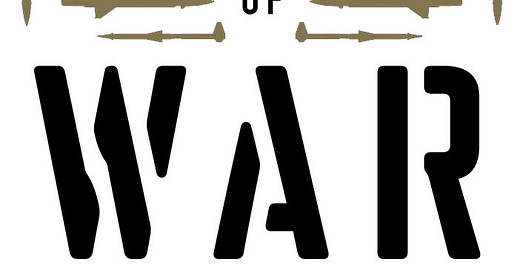“Innumerable wars originate entirely in private passions; in the attachments, enmities, interests, hopes, and fears of leading individuals in the communities of which they are members.”
Alexander Hamilton, Federalist #6.
History is replete with evidence that Hamilton was absolutely right, and that the whole notion that national leaders behave as they do on the basis of “foreign policy” or “national interest” has little foundation. For example, why did John F. Kennedy act as he did during the Cuban Missile Crisis? It was not because he thought the U.S. was in additional danger from Russian nukes in Cuba. ‘What difference does it make?’ he said at the time, ‘They’ve got enough to blow us up anyway.’ Uppermost on his mind was the impending 1962 mid-term elections. The stakes were high for his presidency. The Republicans were taunting him for ‘weakness’ over communist control of Cuba, so he had to make a crisis and show strength. In other words, it was all about the politics - the determination of leaders to hold onto power. It always is, especially for Vladimir Putin.
We have heard a lot in recent weeks about Putin’s ‘paranoia’ over NATO enlargement, or that he is ‘deranged.’ But looked at from his perspective, which is all about protecting his own personal power from domestic political threats at whatever the cost to Russia or anyone else, his actions have been entirely rational. From the beginning, his political appeal in Russia has been as the leader who re-established internal stability after the chaos of the 1990s, and stood up for Russian national security and the country’s status as a great power. His popularity shot up when he brutally crushed the nationalist uprising in Chechnya soon after taking power, and shot up again in the wake of the 2014 Ukrainian civil war, when he defied western condemnation and took over Crimea. In the 2016 elections his party, United Russia, gaining almost a hundred seats in the Russian parliament. The communists and extreme right wing nationalists, his main opposition, both lost badly. But in the most recent elections last November, the Communists, who had in the meantime adopted a far more extreme nationalist platform, rebounded, boosting their vote by 5 percent while Putin’s party slumped. A forthcoming paper by UCLA political scientist Professor Richard D. Anderson, a premier scholar of Russian political realities, tracks Putin’s reaction to this political threat in serial pronouncements on Ukraine. In July, 2021, Anderson points out, Putin published a long and largely inaccurate article ‘On the Historical Unity of Russians and Ukrainians’ that spent a lot of space discussing ancient myths of ‘Rus’ and cossacks and the Tzarist empire, all to show that Ukrainians and Russians are really one and the same. At the end he mentioned, fairly briefly, how the communists had added territory to create the modern Ukraine.
The elections a few months later, along with indications of fading control, such as failure to legislate covid-related restrictions, seemed to change his perspective. On February 21 this year, in a long address announcing his decision to recognize the separatist regimes in eastern Ukraine, Putin junked the long excursion through Ukrainian history before the 1917 communist revolution into just two sentences, and spent the next twenty-seven paragraphs, by Anderson’s count, blaming the creation of modern Ukraine entirely on the communists, detailing how successive leaders had made arbitrary, coercive, senseless decisions about assignment of territories to a fictitious state called Ukraine. These decisions, he said at one point, ‘were not simply a mistake, they were, as they say, much worse than a mistake.’ In this way he trumped the communists, who had already called for recognition of the separatist republics, and showed that he had taken control of the nationalist high ground. The speech, says Anderson ‘showed who he was really afraid of.’
I’ll be saying a lot more along these lines about what really drives ‘policy.’ But I’ll leave you with one further example relevant to today’s events: Bill Clinton’s decision to promote NATO enlargement despite earlier U.S. government promises to to Moscow to do no such thing. But like any first term president, his priority was his re-election to a second term. When his principal security adviser, the Polish nationalist Zbigniew Brzezinski, told him that NATO enlargement was key to getting eastern European emigrés in the northern midwest to vote for him, Clinton had no hesitation in promising to deliver.




I don't mean to confine it to electoral politics. My point is that leaders of any stripe, whether democrats or autocrats, act in their own political interests as they perceive them.
The "Cockburn Rule": there's no such thing as "POLICY" - foreign, dmestic monetary or any - as the only policy of elected politicians is to be re-elected